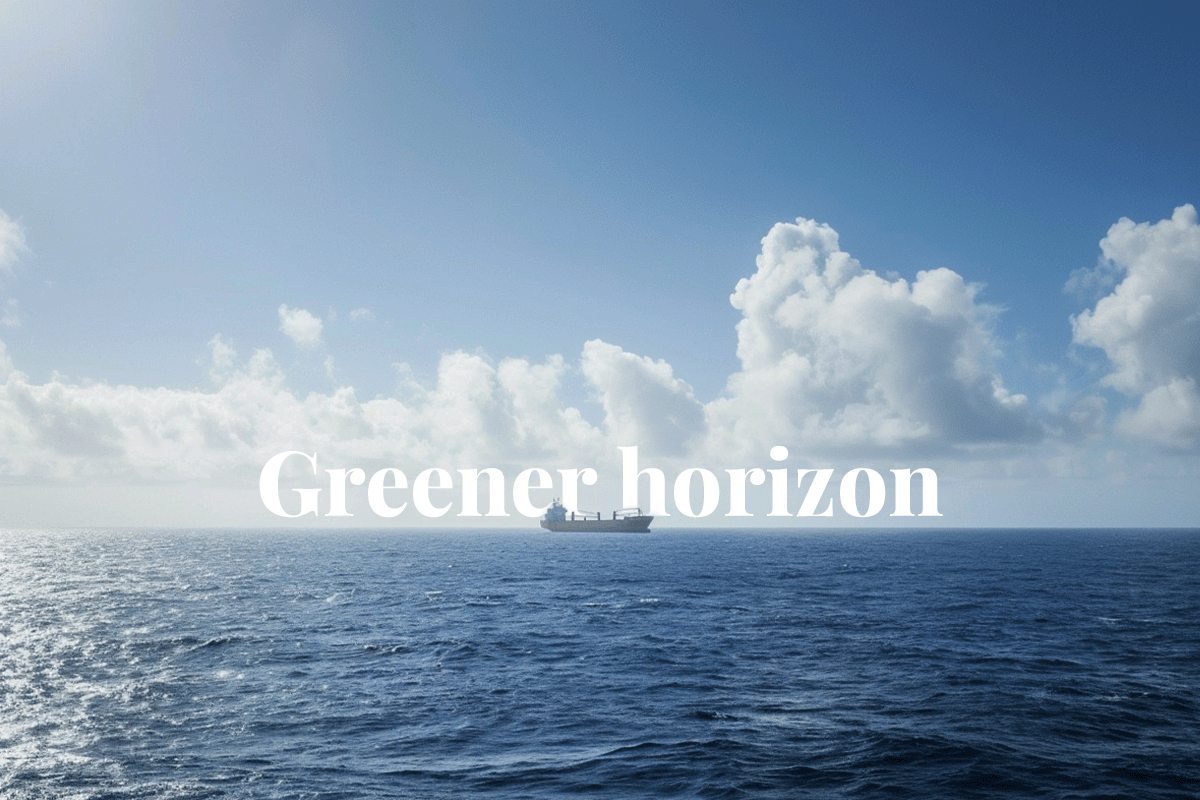Maersk, a global leader in shipping, has announced ambitious plans to drastically reduce its carbon footprint by 2040, focusing on cutting direct and power-related emissions by 96% and indirect emissions by 90% from a 2022 baseline. The company will tackle remaining emissions through offsetting strategies approved by the Science Based Targets initiative (SBTi).
 Sailing supply ship on a sea horizon. AI generated picture.
Sailing supply ship on a sea horizon. AI generated picture.
To achieve these long-term objectives, Maersk has outlined a series of interim goals for 2030, including a 35% reduction in direct emissions and a 22% cut in indirect emissions, alongside a commitment to fully transition to renewable electricity sources.
This initiative comes as Maersk recognises the growing demand for sustainable shipping solutions from its customers, many of whom have set their own science-based targets. Morten Bo Christiansen, Maersk’s head of energy transition, emphasised the importance of setting rigorous short and long-term targets to drive significant environmental impact within this decade.
Read more: Heerema's voyage to a greener future: anchored in sustainability
Key strategies for reducing emissions include enhancing fuel efficiency, switching to renewable electricity, and exploring alternative fuels despite their higher costs compared to conventional fossil fuels. Maersk is advocating for policy changes to encourage investment in green shipping technologies.
The challenge of decarbonising the shipping industry is underscored by its significant contribution to global CO2 emissions and the current lack of commercially viable low-carbon technologies. However, recent initiatives, such as the UK Government's $41 million investment in clean maritime technologies and the international commitment to develop zero-emission shipping corridors, highlight a growing momentum towards sustainable maritime transport.
Read more: Industry carbon footprints: transport, events, and celebrities
With the maritime sector poised at a crucial juncture, these developments represent a concerted effort to not only reduce the environmental impact of shipping but also to propel the industry towards a more sustainable and economically viable future.
As more businesses and notable personalities acknowledge the importance of reducing their environmental footprint, the role of our carbon units in carbon offsetting strategies and fostering beneficial environmental changes becomes crucial. At DGB Group, our commitment to restoring nature's balance plays a pivotal role in bridging the gap between economic development and environmental conservation. By evaluating and mitigating your carbon emissions, you contribute to creating a more sustainable future.
Compensate for your carbon emissions with DGB’s tailored solutions



